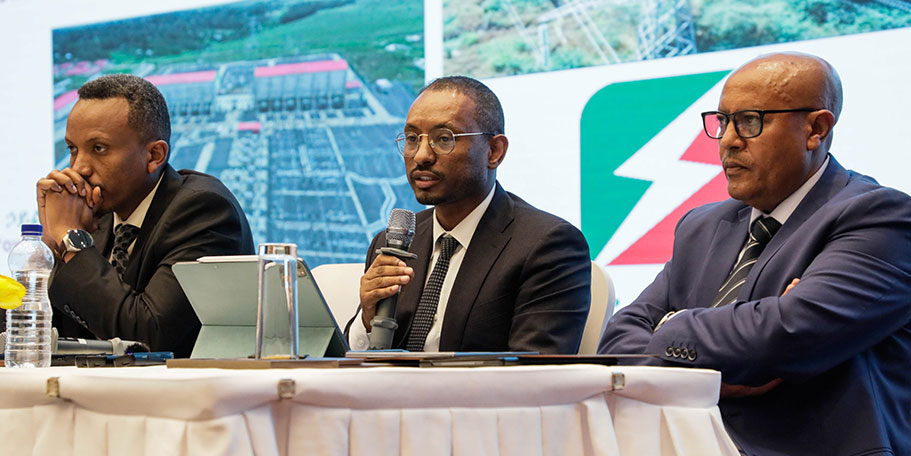
Half of Electric Power’s revenue devoted to Koysha hydropower project
The state-owned Ethiopian Electric Power (EEP) has announced intentions for a gradual phase-out of all cryptocurrency mining operations amid growing public pressure over the growing energy burden posed by crypto-related data centers.
Crypto mining outfits began flocking to Ethiopia over the past year, attracted by low energy tariffs and a government eager to accommodate foreign investment. However, concerns over their astronomical energy needs have led the heads of EEP to reconsider its engagement.
The recently published Ethiopian Energy Outlook 2025 report revealed that cryptocurrency mining is on track to consume a third of Ethiopia’s total power output this year. It warned this level of consumption could compromise essential sectors, particularly in rural areas still struggling with blackouts and diesel dependency.
“There will be no new contracts in the field of data mining, and we are not interested in continuing with existing ones either,” said Asheber Balcha, CEO of EEP, during the annual performance review held on Friday, August 7.
Asheber noted that EEP had initially started to engage in crypto mining agreements as a short-term foreign exchange earner which enabled it to rake in USD 220 million last fiscal year.
However, the CEO stressed that the sector was never part of the EEP’s long-term strategy.
“We have only started it for a short time. After a few years, companies engaged in this sector will leave or shift to other sectors,” he told the media.
EEP’s decision also reflects growing scrutiny over power allocation fairness. Though crypto miners pay USD 3.14 cents per kilowatt-hour in foreign currency, millions of Ethiopians still endure unreliable power access.
Still, Asheber insisted, “Domestic consumers and strategic industries are always our priority.”
Ethiopia’s recent pivot toward digital infrastructure began in 2023, when the government—despite an ongoing ban on crypto trading—began licensing Bitcoin mining operations through a multi-agency task force led by the Information Network Security Agency (INSA).
Over twenty-one firms—nineteen of them foreign-owned—have since signed power purchase agreements with EEP. Most are reportedly backed by Chinese investors and located near existing power infrastructure in and around Addis Ababa.
But beginning February 2024, officials have suspended the issuance of new licenses, citing concerns over implementation progress and the impact on national grid capacity.
The Ethiopian Energy Outlook report published by the country’s state-owned utility firms and the Petroleum and Energy Authority in June also urged policymakers to reconsider energy allocation, especially as 15 million households remain off-grid and more than 40 percent of the population lacks reliable electricity access.
Alongside the crypto clampdown, EEP is grappling with a major budget shortfall, revealing that it plans to earn 138 billion Birr in revenue this year but requires 251 billion Birr to meet its project and operational needs.
Asheber disclosed that 50 percent of EEP’s current revenue is being directed to the Koysha Hydropower Project, the second largest in the country after the Grand Ethiopian Renaissance Dam (GERD).
The CEO noted that funding constraints are slowing progress.
Under the IMF Extended Credit Facility program, which obligates Ethiopia to avoid non concessional loans, a special exemption to borrow USD 950 million to finalize Koysha has been granted.
Demere Assefa, deputy CEO for finance at EEP, stated that the budget gap would be closed through a mix of domestic borrowing, grants, and minimal financial assistance from the Ministry of Finance.
Despite growing energy demand, Asheber confirmed that no new power generation projects will be launched in the current fiscal year. Instead, EEP will focus on completing ten major ongoing projects, including GERD and Koysha.
GERD is currently producing 3,400 megawatts, contributing the largest share to the national grid, he stated.
EEP reported USD 118 million in revenues from electricity exports in 2024/25.
.
.
.
#EEP #Phase #Crypto #Mining #Grid #Strain #Concerns #Mount
Source link











